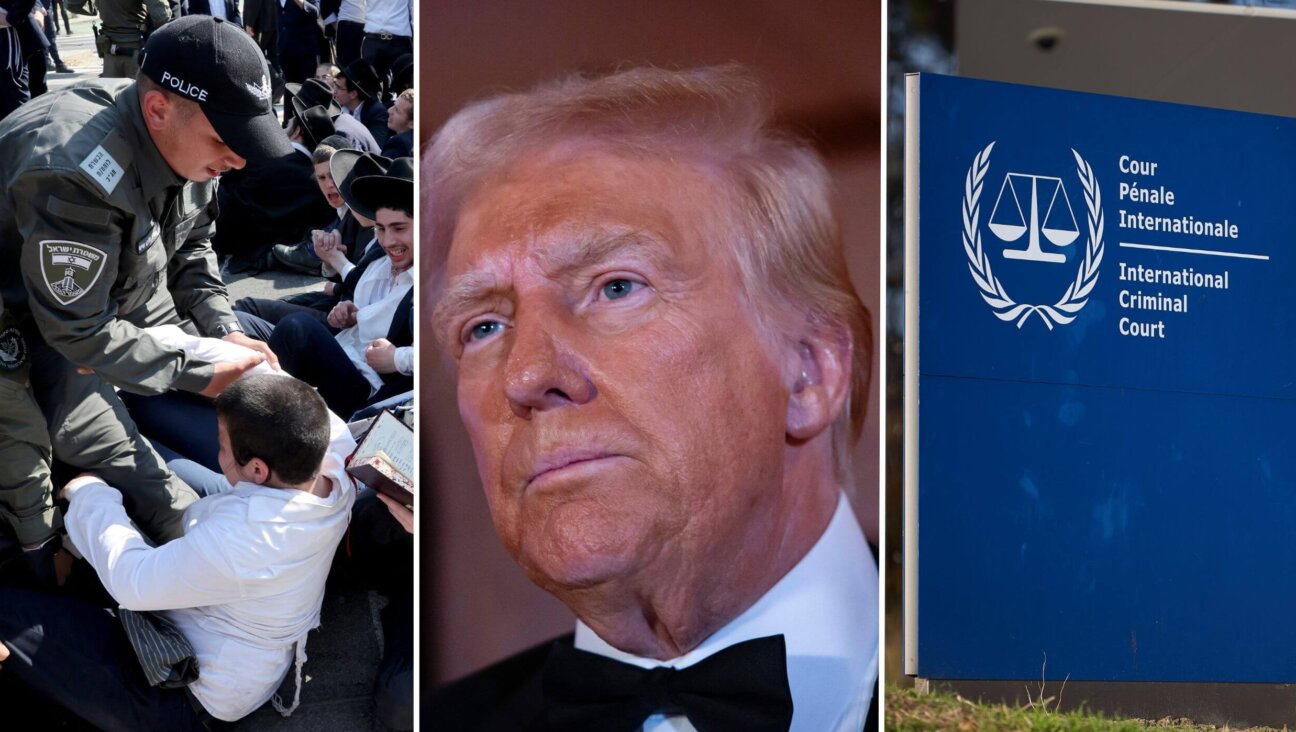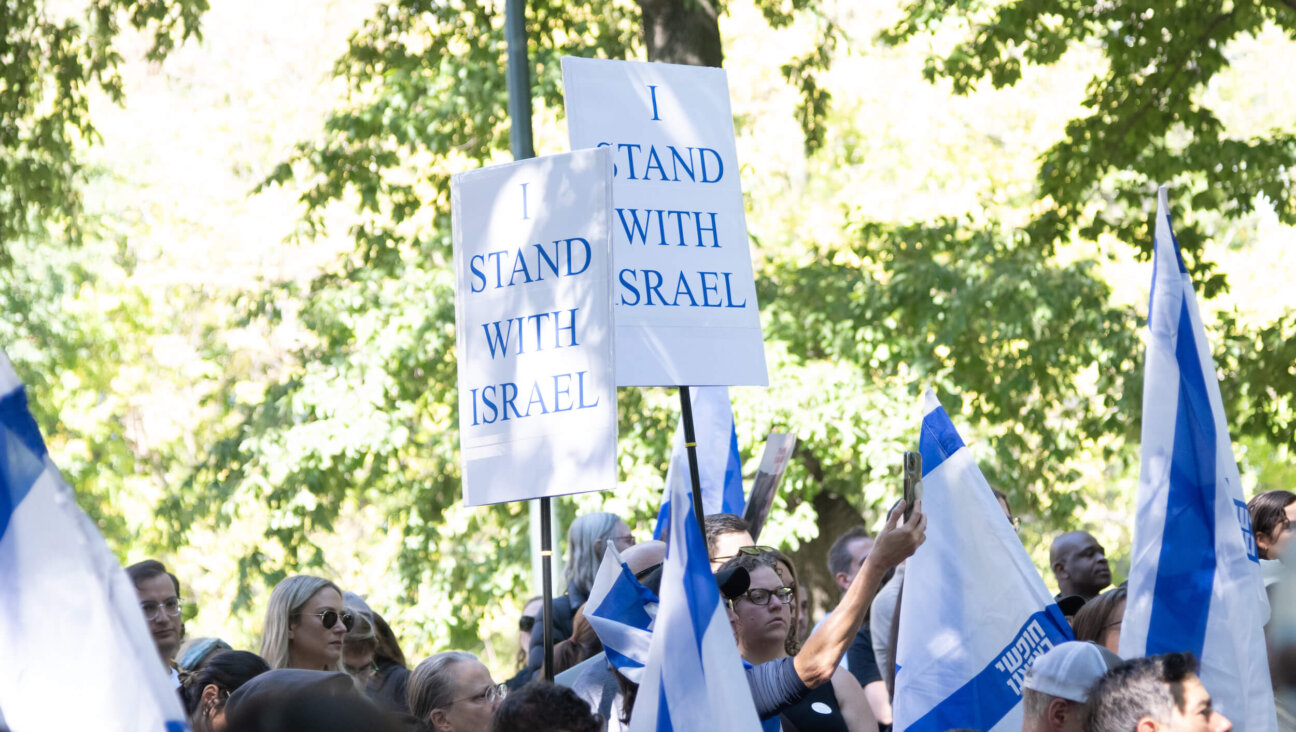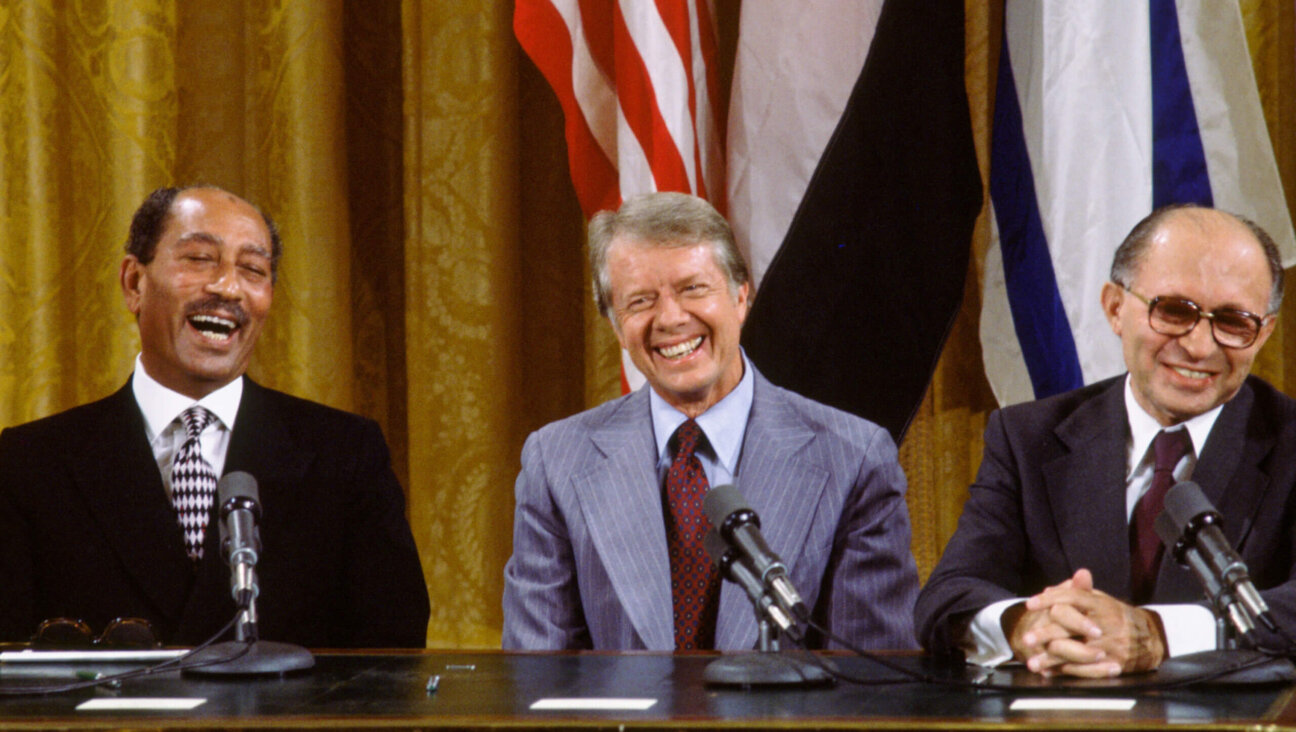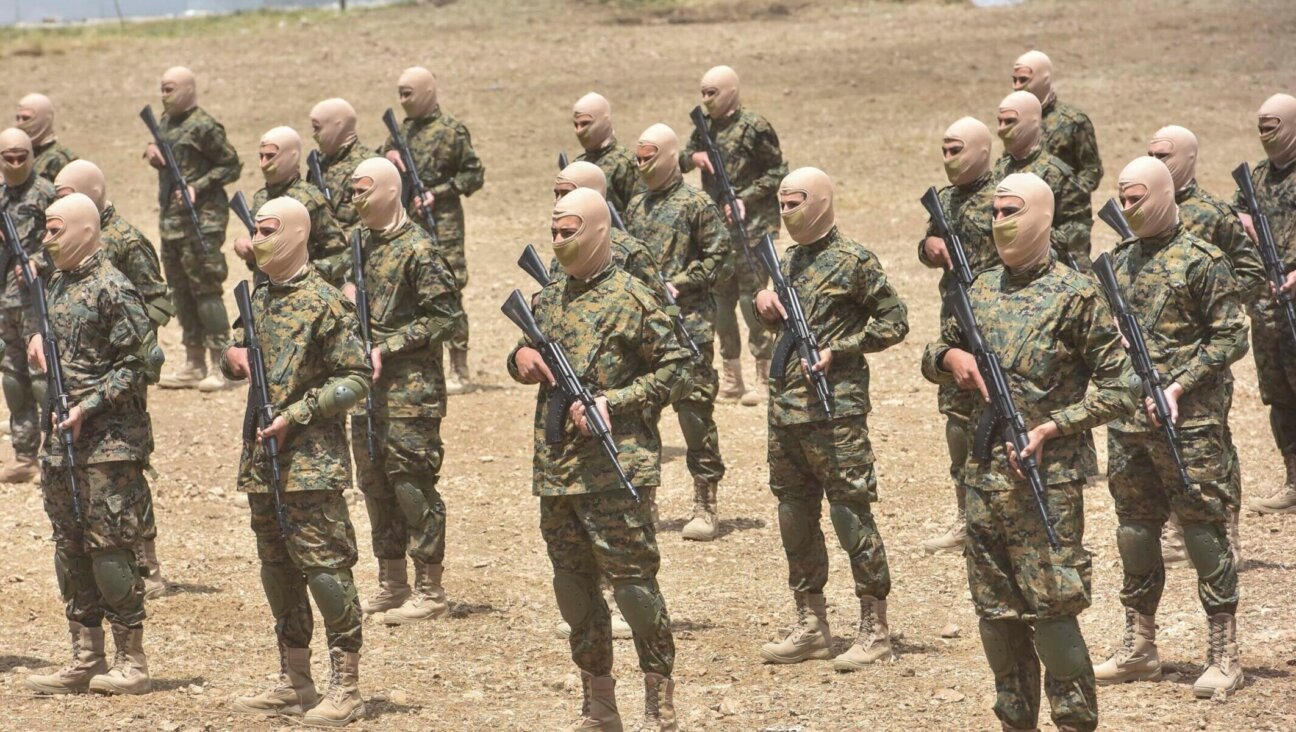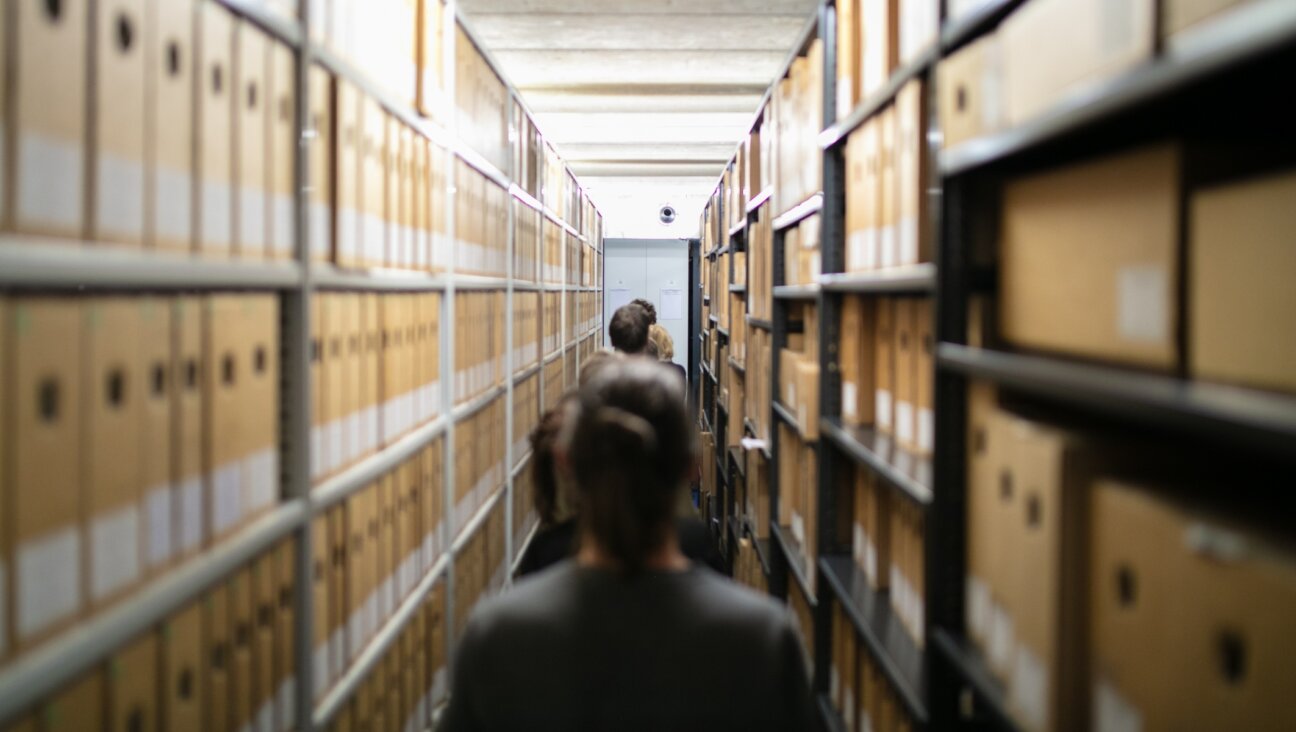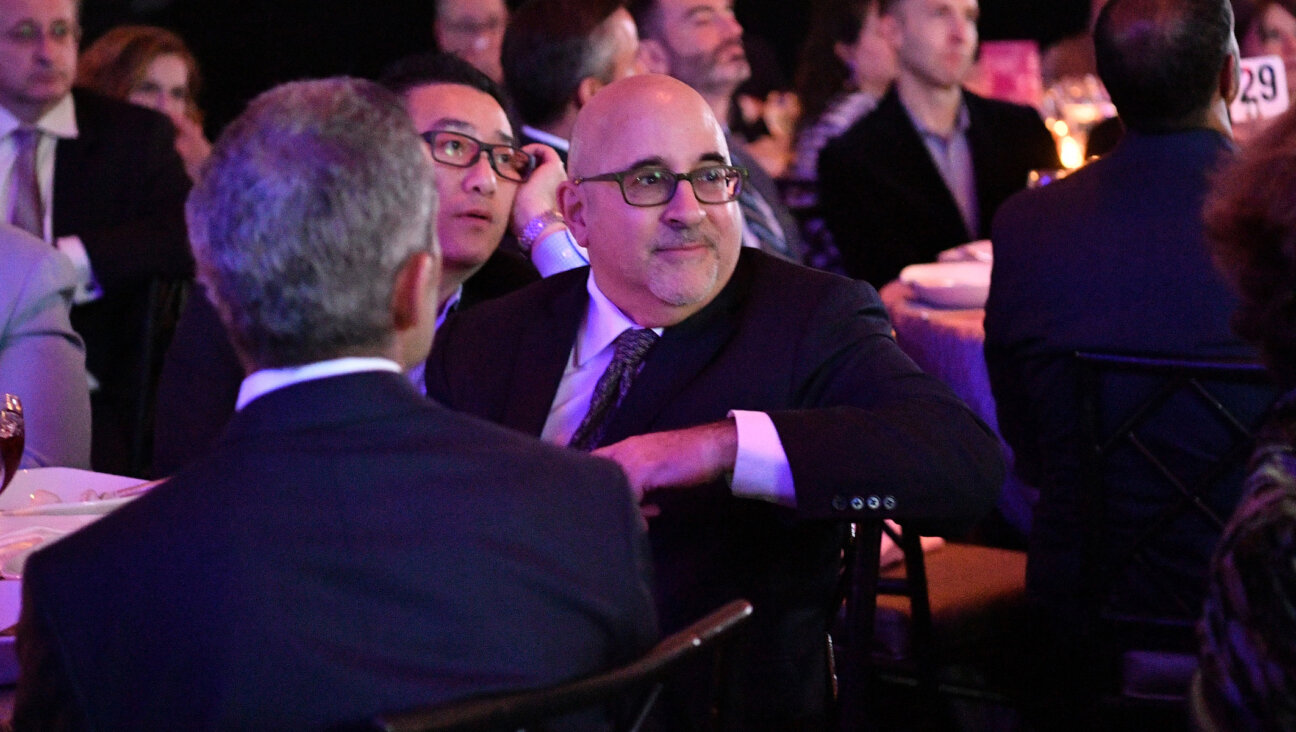In Sudan, A Modern-Day Story of Slavery
It is during Passover that we Jews are most sharply reminded that we walk the earth as redeemed slaves. But while human bondage may for us be a thing of the distant past, for many others slavery is not a matter of history. This year, as we celebrate our redemption at Seder tables around the globe, there are by conservative estimate 27 million slaves serving masters on every continent.
One of the worst cases of slavery is in the African country of Sudan. There, a Taliban-like fundamentalist regime took power in 1989 and launched a jihad that revived the trade in black slaves. Until just a few months ago, when an American-initiated peace process established a shaky cease-fire, the Sudanese regime sent Arab militias to raid black villages in heavily Christian southern Sudan. They shot the men and captured the women and children. The latter group — often raped and gang-raped at the point of capture — were marched north, bought and sold, and often forcibly converted to a faith not their own. Estimates range from tens of thousands to more than 100,000 slaves still in captivity.
The war that has been raging in Sudan since 1983 has killed more than 2 million people and driven millions more from their homes. According to international aid experts, more than 100,000 were forcibly starved to death. Colin Powell told Congress in 2001 that there is “no greater tragedy on the face of the earth today” than Sudan.
Yet it was a long, arduous struggle to get the media to focus on Sudan and to get the public or an American administration to respond. No establishment human rights group has led a sustained campaign for the victims of slavery and slaughter in Sudan. Until prodded by scenes of modern-day abolitionists redeeming slaves on American television, Unicef, the world’s most prominent protector of women and children, was quiet.
But thanks to pressure brought by an unlikely coalition that includes Christian and Jewish groups, the Congressional Black Caucus, black church leaders and secular activists, stopping the horror in Sudan is now American policy. After years of speeches, protests, op-eds, divestment campaigns and even arrests for acts of civil disobedience, this left-right coalition in 2002 got Congress to pass with near unanimity and the president to sign the Sudan Peace Act, which has funded a comprehensive American-led peace process.
The Southern People’s Liberation Movement and the Sudanese government agreed to a cease-fire in 2002 and are now in the process of trying to negotiate a settlement. A settlement will not be easy. Antagonism between the Arab (and historically slaving) north and the black tribal south predates the decision of English mapmakers to paste them together into “Sudan.” The list of items to be negotiated include power-sharing, the sharing of oil wealth, the nature of cultural autonomy, the political disposition of black enclaves in the north and the religious status of the capital, but the overarching issue is how — or if — these two civilizations should share a nation-state.
This already difficult task is made even tougher because the Sudanese regime will not acknowledge it took slaves. And State Department diplomats participating in negotiations have not made the liberation of the slaves a precondition. But if the slaves are not freed, there will be no peace.
Worse still, the Sudanese regime, its southern front now quiet, has launched a genocidal attack on Darfur, a largely black Muslim province in western Sudan, which also seeks cultural autonomy. U.N. workers report widespread abuses against civilians, including “killings, rape and the burning and looting of entire villages.” A top USAID official calls Darfur “arguably the worst humanitarian crisis in Africa.” A U.N. relief worker told journalists, “There is a systematic removal of populations of non-Arab origin.”
And there is reason to think pro-government forces may be taking black Muslim slaves in Darfur. Human rights groups have documented mass abductions, particularly of children, by government-backed militias. A farmer from the village of Kishkish in Darfur told an Amnesty International worker that raiding militias cursed the African villagers: “you are black and you are… our slaves. Darfur is in our hands and you are our herders.” In light of what is happening in Darfur, can we expect the peace in the South to hold? Will slave raids begin there anew?
Why is it so hard to get the media and the progressive activist community to care about the slavery and slaughter of blacks in North Africa, when they led the charge to free blacks from an arguably lesser horror in apartheid South Africa? Can it be that the South Sudanese were abandoned because they have the “wrong” oppressors? Have our progressive elites abandoned the principle of “Justice for All,” marching instead only under banner “Not in My Name?” Is the only point expiation? Is evil committed by non-whites simply beside the point?
This Passover let us think about universal justice. Let us fight for the liberation of all slaves — no matter who their masters may be. As Jews around the world sat at the Seder table this year, we asked the traditional Four Questions. We might well have added a fifth: What can we former slaves do to help those in bondage today?
Charles Jacobs is the president and co-founder of the American Anti-Slavery Group.
A message from our Publisher & CEO Rachel Fishman Feddersen

I hope you appreciated this article. Before you go, I’d like to ask you to please support the Forward’s award-winning, nonprofit journalism so that we can be prepared for whatever news 2025 brings.
At a time when other newsrooms are closing or cutting back, the Forward has removed its paywall and invested additional resources to report on the ground from Israel and around the U.S. on the impact of the war, rising antisemitism and polarized discourse.
Readers like you make it all possible. Support our work by becoming a Forward Member and connect with our journalism and your community.
— Rachel Fishman Feddersen, Publisher and CEO








